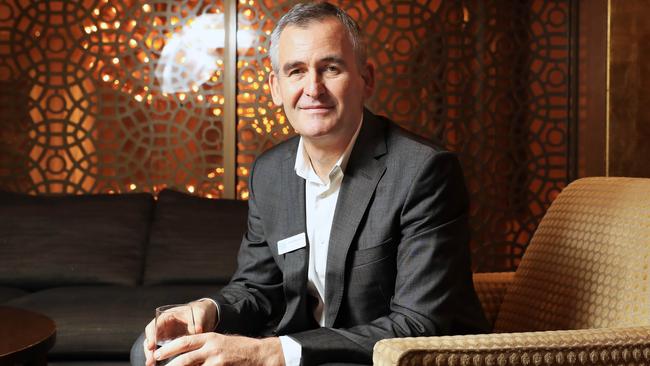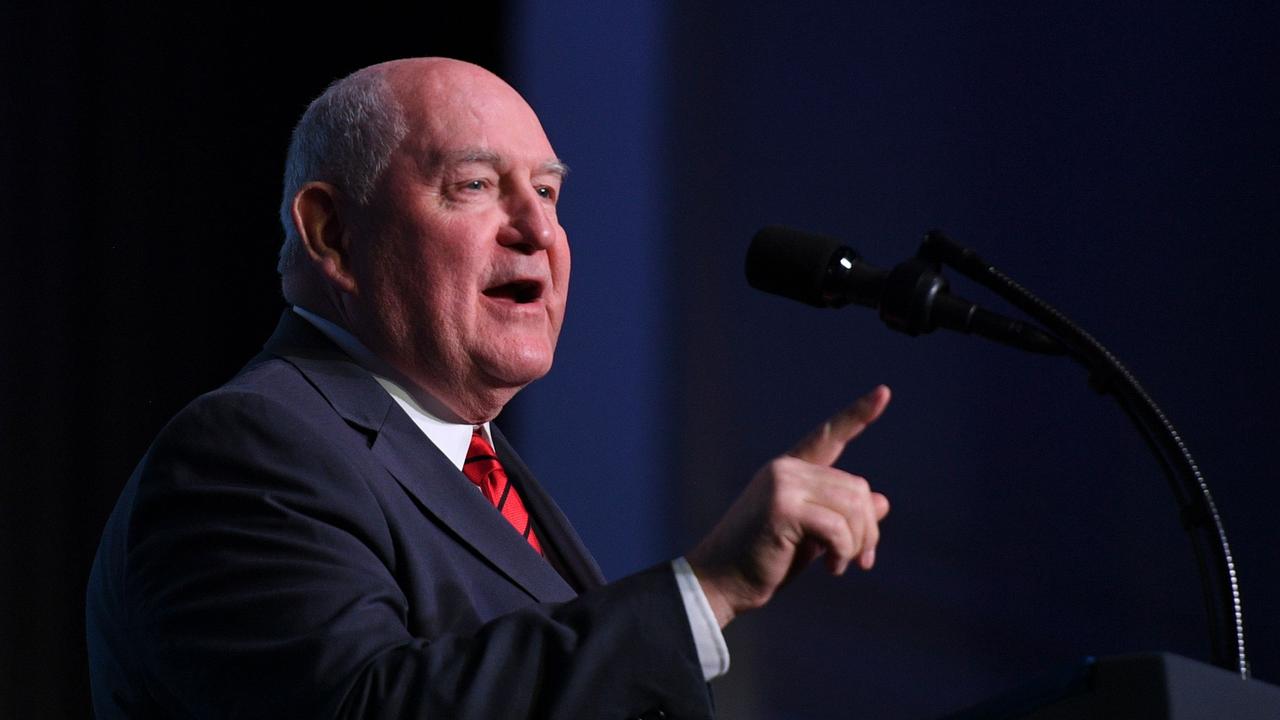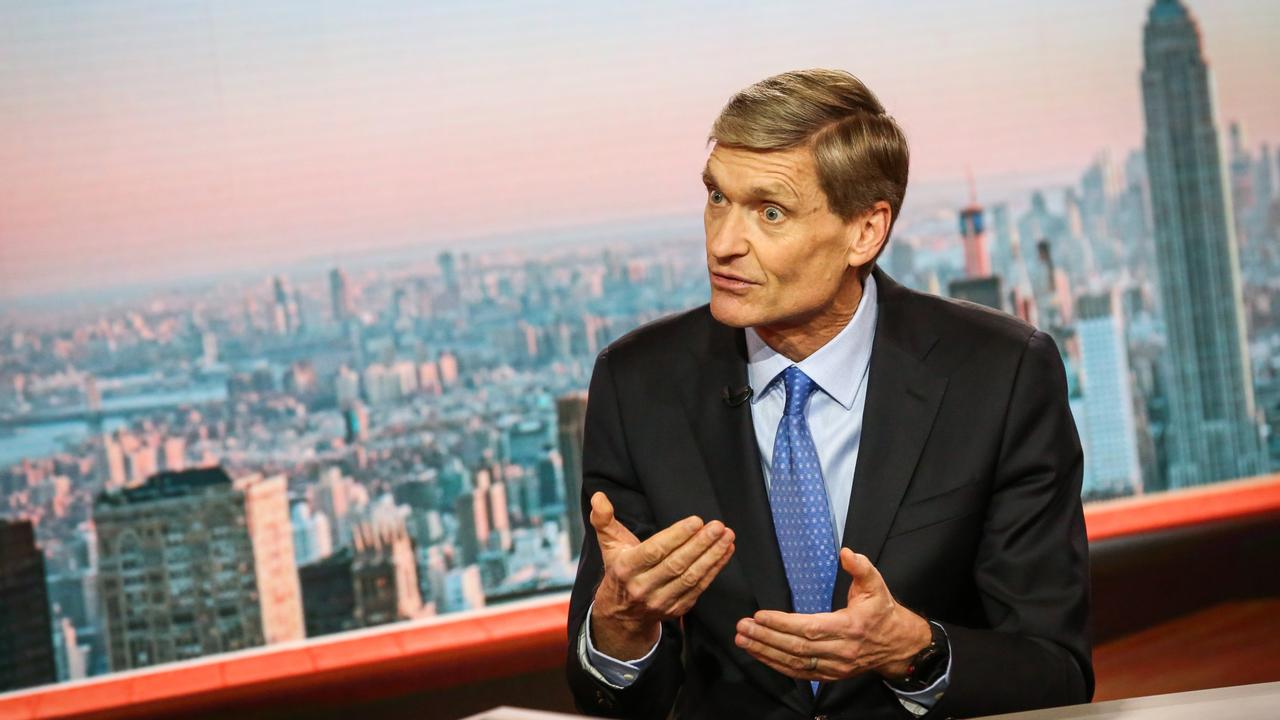Global Food Forum: energy crisis to lift grocery bills
Woolworths CEO Brad Banducci has declared that managing his spiralling energy costs is like ‘trying to outrun a bear’.

Woolworths chief executive Brad Banducci has declared that managing the supermarket business’s spiralling energy costs is like “trying to outrun a bear”, and warned that consumers will pay more for groceries as a result.
Mr Banducci’s comments to The Australian’s and Visy’s Global Food Forum in Melbourne yesterday were backed by the nation’s biggest fruit and vegetable producer, Costa Group, and the largest producer of poultry, Inghams Enterprises, while former trade minister Andrew Robb described the nation’s energy crisis as a “crime’’.
Mr Banducci said the retailing giant was installing more energy-efficient lighting and refrigeration in its stores but soaring consumer demand for more ready-made chilled food products would mean energy cost increases would more than outweigh savings.
“We manage what we can manage with energy efficiency,” he said. “But given the cost increases that are coming through right now, we are trying to outrun a bear, but I am not sure we can.
“We will have to, in some way, very cautiously and carefully, pass those through to our customers, unfortunately.’’
The forum also heard from Blackmores chief executive Christine Holgate, who said while Australian companies should not “take their foot off the pedal’’ on their China ambitions, they should focus more on the opportunities in Indonesia and Southeast Asia.
The forum, which was attended by other top food industry executives and key players in the fast-food and restaurant industries, was also told about the renewed opportunities for exporters to China following a welcome ruling by the Chinese government last week. Shares in Blackmores, A2 Milk, Bellamy’s and other exporters to China rose on news that the cross-border e-commerce framework governing online sales into China was likely to be retained virtually intact following a year-long review.
Malcolm Turnbull recently convened an urgent meeting of big gas producers to try to avert an east coast “energy crisis” after the Australian Energy Market Operator warned NSW, Victoria and South Australia would face power shortages in the next two years.
Cargill Australia, which has operations across the grain, oilseed storage and meat-processing sectors and owns the nation’s largest malt producer, recently said it would reconsider expanding operations here unless it could secure guaranteed supplies of power and gas at prices that allowed its operations to remain competitive in its global empire.
The government last week reached a deal with LNG exporters to supply more gas domestically and has granted the Australian Competition and Consumer Commission more powers to investigate and report on electricity prices.
Costa Group chief executive Harry Debney said yesterday he was seeing a 20 per cent cost increase to his operations as a result of soaring power costs. “But the biggest concern we have got is actually continuity of supply,” he said. “We have just spent $2m at our mushroom plant outside Melbourne to put in back-up generators. It is a pretty sad situation when companies like us have to spend money just on the off-chance we lose power. That is not a productive use of capital.
“We have been taking electricity for granted. We can no longer do that so we have to do something about it.’’
Inghams chief executive Mick McMahon said that for Australia to be facing an energy crisis was “not very satisfying, or not a great place to be’’. He said the company was looking at reducing energy usage at its processing plants, farms and sheds by looking at renewables investment through the supply chain.
Mr Robb said Australia was not investing enough in trying to “clean up’’ its coal reserves.
“This is a crime what’s happened,” he said. “We are awash with gas and black and brown coal. Sure some of that’s dirty but we’ve spent virtually no money trying to clean up (coal) and China is showing the way.”
Bega Cheese boss Barry Irvin urged a bipartisan approach on the issue in Canberra.
“Give us clear, consistent policy,” Mr Irvin said. “I think there’s been a waxing and waning on what the right thing to do is and the debate has become very emotive. Giving an ear to either extreme is not the answer.”
Fonterra Australia boss Rene Dedoncker said rising energy costs would need to be passed on.
“If you can’t recover (higher costs), they will need to form part of the setting in the marketplace.”
Additional reporting: Daniel Palmer




To join the conversation, please log in. Don't have an account? Register
Join the conversation, you are commenting as Logout